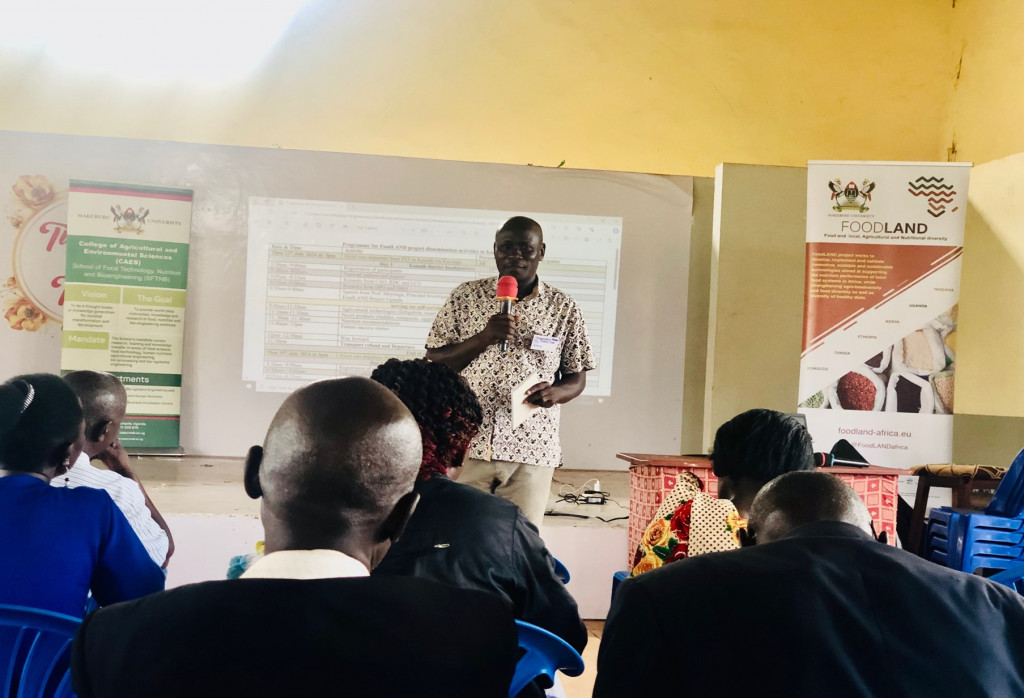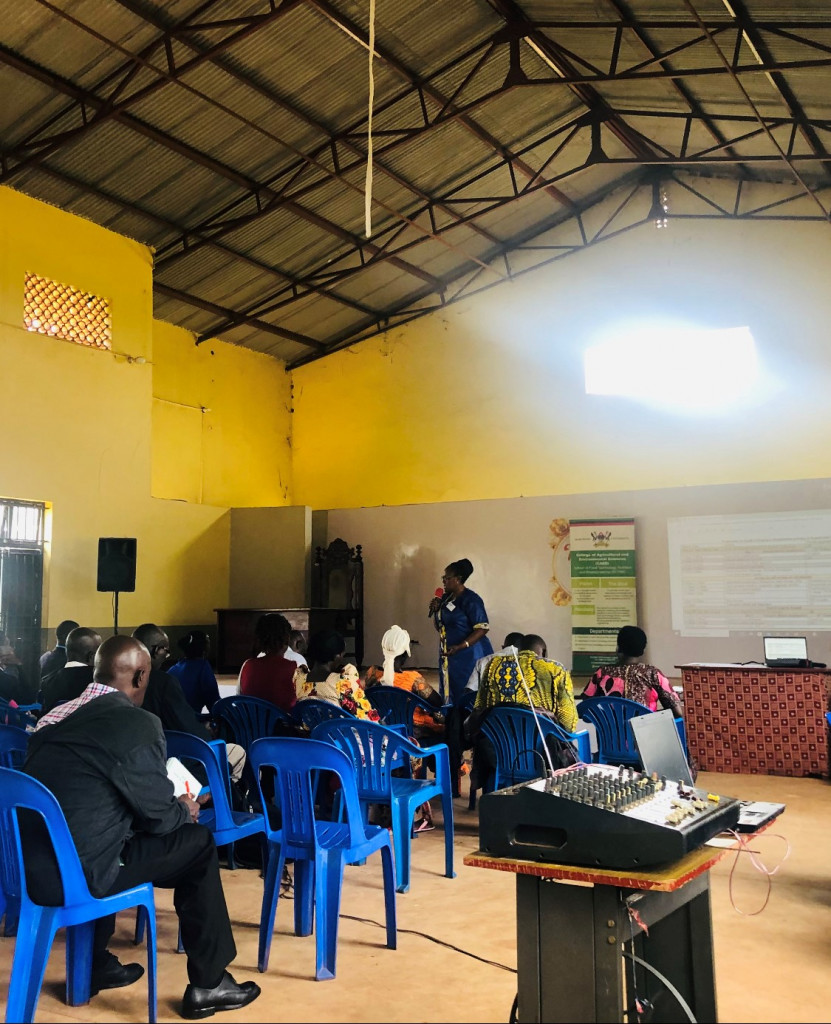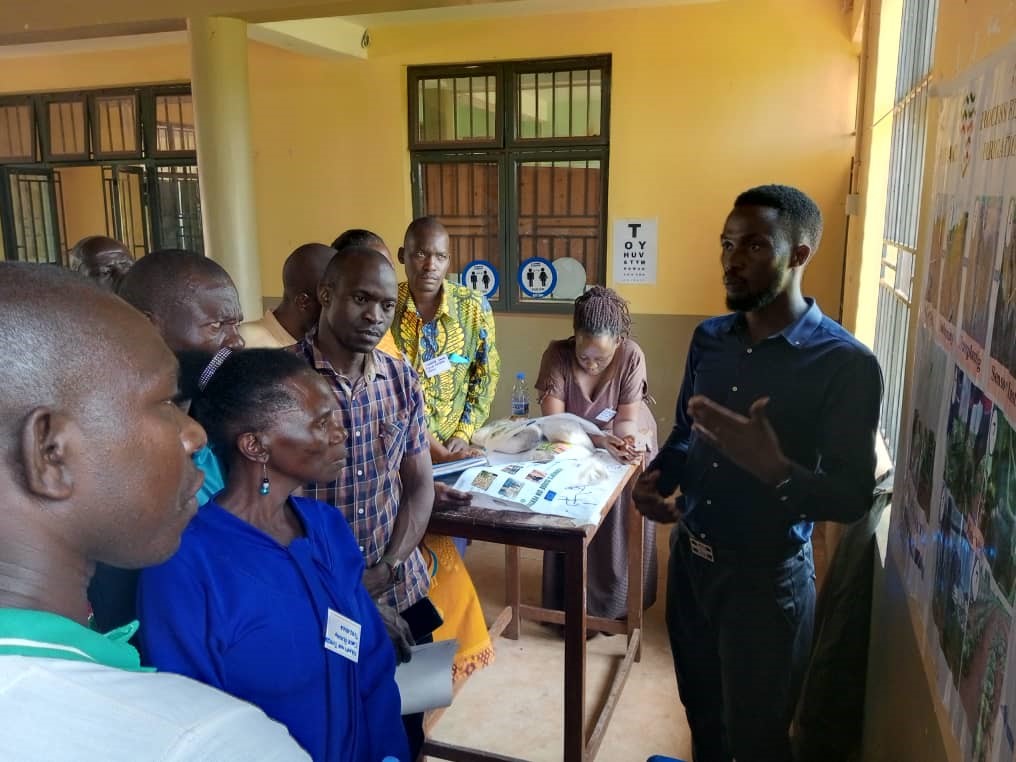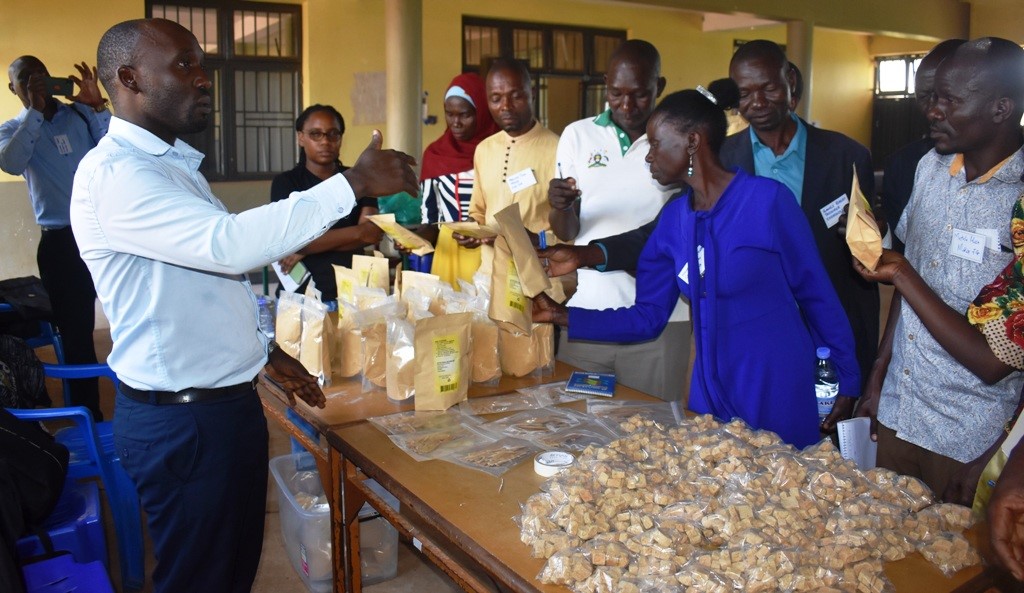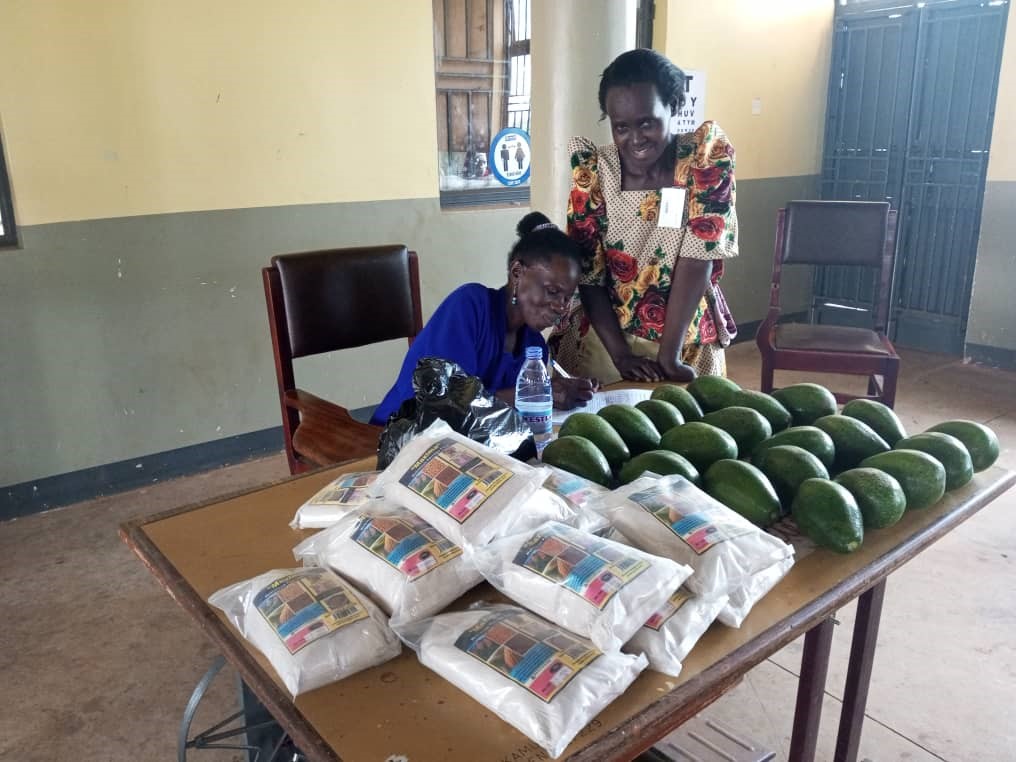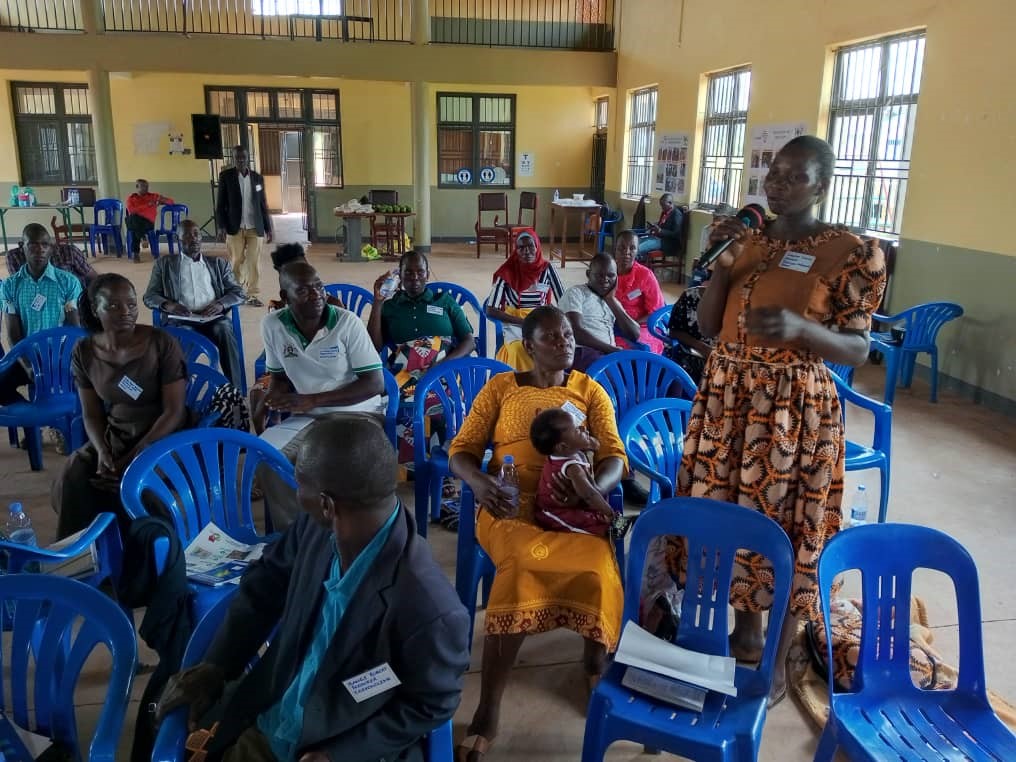FoodLAND shows project findings and raises awareness of both technologies and nutritional recommendations based on research results in Kamuli, Uganda
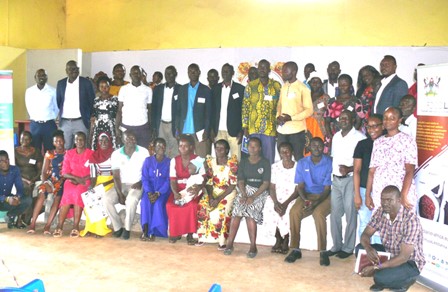
On 12 June 2024, the first dissemination workshop in Uganda took place, at the Kamuli Multi-Purpose Youth Hall. This meeting combined the participation of both stakeholders of the Kamuli district and FoodLAND researchers, who together offered an overview of the principal health problems and challenges they are facing in the district, as well as the technological innovations, the novel food products and the nutritional recommendations FoodLAND researchers have developed, tested and validated to tackle these challenges.
Key District Officials remarked on different aspects of the health problems related to nutrition they cope with together with difficulties farmers experience in their business. Firstly, the Veterinary officer representing the district production officer, Mr James Kunya, highlighted major health issues reported within the district like diabetes and hypertension caused by overconsumption of fats. He affirmed that “the FoodLAND project has its objectives in the right place”. The representative of the secretary for production of the Kamuli District Local Government Mr Muwangala Moses addressed misconceptions about vegetable consumption, poor school performance due to malnutrition, and the issue of teenage pregnancies. He corrected the narrative that eating vegetables is not feeding poorly but rather appropriate and recommended. Deputy Resident District Commissioner Mrs Sarah Mwebaze Kasadha stressed the need for training on balanced diets, hygiene practices, and engaging extension workers and horticulturalists in project activities. She implored the members present to “pass forward the message from the FoodLAND project such that it reaches other members of the communities”. Finally, the Kamuli District Health Officer Mrs. Winifred Kaizah called for action steps by farmers in preserving vegetables to ensure that they are available throughout the year. She encouraged participants to adopt innovations like solar drying of eggplants, dissemination of information through community groups and gatherings, follow-up on farmers, and record-keeping for implementation. The DHO emphasized the need for cleanliness to control rodents both in the farm fields and homes.
The attendees received presentations on the innovations that have been designed and tested in FoodLAND by the FoodLAND partner Baraka Price: the precision irrigation and fertigation systems developed, the smart storage system including a smart rodent control system (which is made to detect movement in a store using infrared radiations), and the agro-ecological intensification (AEI) practices which included mulching, intercropping, mixed cropping, use of manure, and Integrated Pest Management. He explained that these practices require resources that can be locally sourced, and their application does not compromise environmental health. In addition, he encouraged more farmers to adopt the practices as they have numerous benefits including preserving soil fertility, increasing productivity and reducing crop pests and diseases.
A session for presenting the food products developed in FoodLAND also was organised, where, apart from displaying the four food products produced, namely dried eggplants, baked daddies, noodles and composite flours, the farmers were encouraged to add value to their produce by investing in primary processing. In addition, farmers were encouraged to use such nutritious flour to make secondary products such as noodles and nutritious snacks (daddies) that can substitute unhealthy snacks currently consumed.
Last but not least, a session about the nutritional recommendations developed in FoodLAND was presented by Josephine Kisakye.
the project has formulated nutritional recommendations that can benefit the general population with emphasis on adults and the elderly. She advised the stakeholders to eat locally available foods and limit the purchase of ultra-processed foods. She encouraged people to eat foods from all food groups including starchy foods, protein-rich foods, vegetables and fruits that are produced in Kamuli in abundance.
Statements by participants
Nampiina Topisita, the chairperson of the Tibikoma farmers group, to which the FoodLAND project has contributed greatly to the improvement in food security in Butansi Sub-County: “Previously, we had so many cases of malnourished children, now it is no longer a problem because people have learned how to feed their families, especially children. We give our children nutritious porridge made from silverfish, soy, millet, and grain amaranth”.
A district employee and farmer Mrs. Monic Baligonza, thanked the FoodLAND project for the information provided. She added “I think this information will help us reduce domestic issues that arise from asking for sauce from my husband. I grow a lot of eggplants, but I also give them out to neighbours and friends and then go into periods of lack. With this new knowledge, I will make sure that I dry my eggplants to sustain my household for a longer period”.
